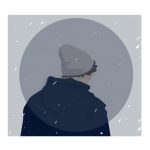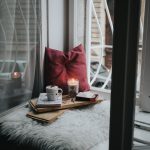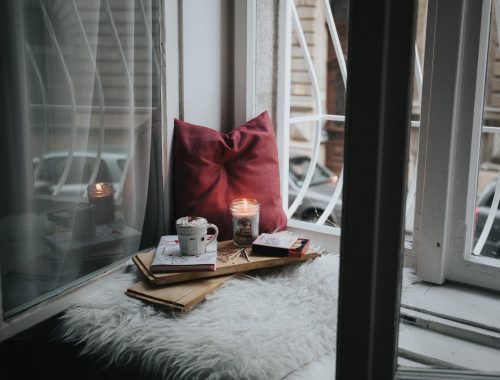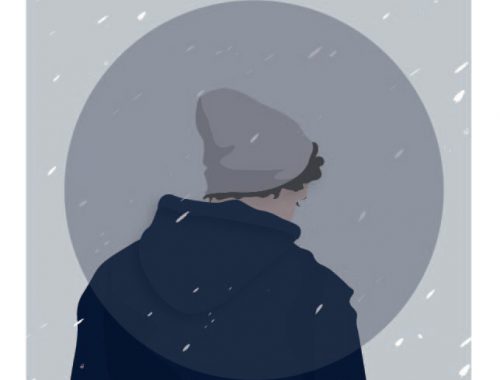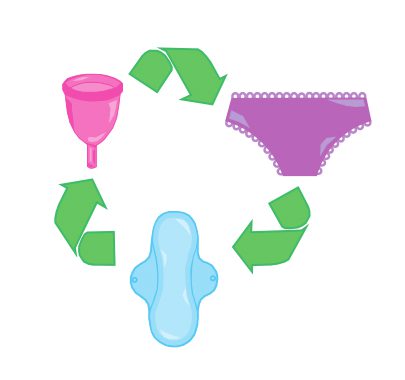
Turn Up the Calm
One man's advice for battling anxiety.
I am not afraid to admit that I have a mental illness. I was diagnosed with generalized anxiety disorder (GAD) at a very early age. According to WebMD.com, about four million Americans suffer from GAD, and it’s more common in women than in men. I am sharing my story because there is a stigma attached to those diagnosed with mental illnesses. I believe that stigma is reduced when people with mental illness share their stories, which allows all of us regardless of mental health status to live happier and healthier.
For years, I’ve explained my fears to psychiatrists and psychologists during therapy. I used to dread severe weather during the summer. I would have panic attacks if there was a severe thunderstorm or tornado watch in the area. Many times, I would end up vomiting if my anxiety became too much for my stomach to handle. Nausea and upset stomach are common symptoms of GAD.
Not only was I afraid of severe weather, but I also hated loud noises. School fire drills were not enjoyable because they were spontaneous and unpredictable. It wasn’t fun being a student with anxiety waiting to be notified if a fire drill was going to happen at my school that day. Sometimes I would be warned if a drill was to occur, but sometimes I wasn’t, which increased my anxiety. I would occasionally lose concentration on the task at hand as my mind fixated on a potential safety drill no one knew was coming.
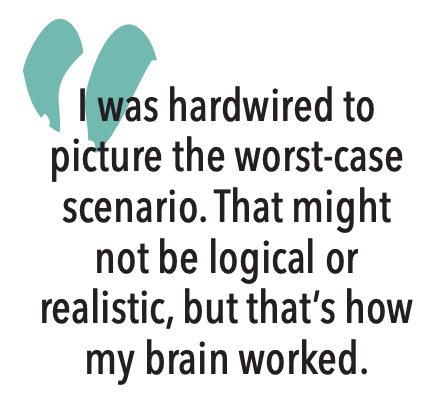
Did other students fear fire drills? Probably not, which made my situation unique compared to other students. I also hated dogs that barked loudly but not as much as fire drills.
I was hardwired to picture the worst-case scenario. That might not be logical or realistic, but that’s how my brain worked. The way I think is inexplicable. It can be a challenge to put words to a strong emotion or fear.
I used to see a psychologist in Uptown Minneapolis. She had two pieces of advice for me whenever I was anxious: either do something fun or something different. This meant that if I was focused on a tornado watch or a potential fire drill, I needed to put those thoughts on the back burner and find something else to occupy that time.
One way I spend that time is by listening to classical music. My favorite composers are Beethoven, Brahms and Tchaikovsky. A favorite work of mine is Tchaikovsky’s popular ballet, “The Nutcracker,” which many associate with Christmas. However, I play it all the time because the music is relaxing and allows me to escape the world right in front of me. I played cello for many years, so music is like therapy for me. It allows me to forget about worldly concerns like deadlines and bills for a brief moment and instead focus on taking care of myself. I usually listen to classical music because rock and pop music don’t have a lot of musical contrast. For instance, classical music can be fast, slow, loud and soft within the same piece and sometimes within the same phrase. Think of the opening bars of Beethoven’s Symphony No. 5. It starts out loud, then gets soft, then becomes loud again. I use noise-canceling headphones, which makes the sound richer and more complex. This also helps to drown out crowd noises.
There are other techniques I use to handle my anxiety. Whenever I have anxious thoughts, I like to shut my eyes and take a long nap. I find that I need more sleep than other people. As a sportswriter, taking in the details of an intense sporting event while also writing and interviewing can make me tired. According to research conducted by Mayo Clinic, a short nap for healthy adults increases mental performance, resulting in quicker reaction time, better memory, reduced fatigue, increased alertness and improved mood. For me, napping touches all the bases. I’m more productive after a nap and less anxious about whatever else comes my way.
The most important thing I do to manage my anxiety is take anti-anxiety medication every morning. If I don’t take my medication, I turn into a wreck. I’ve been taking anti-anxiety medications since before I was in kindergarten. I feel a noticeable change when I take these medications. I feel more relaxed and it’s easier for me to concentrate on the task at hand.
When I listen to music, focus on enjoyable tasks, nap and regularly take my medication, I am able to continue my battle with GAD. My advice for people with this illness is to find something to occupy your time if you’re feeling anxious or stressed. You can listen to music, exercise or do an activity you find relaxing. You will feel much better.
My goal is that by sharing my story and the methods I use to reduce my anxiety, I can help others who are struggling with mental illness. The brain is the most important organ in the body. I treat it that way, and that’s why I’m able to sustain my mental health while living with generalized anxiety disorder.

